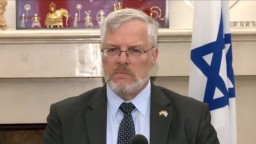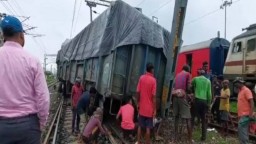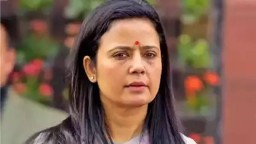Latest News
"Our government has so far transferred Rs 28 lakh crore via DBT under different schemes": PM Modi

New Delhi: Prime Minister Narendra Modi on Friday elaborated on reimagining welfare delivery and talked about the delivery of bank accounts, loans, housing, property rights, toilets, electricity, and clean cooking fuel.
"Our focus was to empower the poor to enable them to contribute to the rapid growth of the country with their full potential", he said addressing the Economic Times Global Business Summit at Hotel Taj Palace in Delhi today. According to a statement from the Prime Minister's Office, giving an example of Direct Benefit Transfer, PM Modi remembered former Prime Minister Rajiv Gandhi's remark on leakage that only 15 paisa out of one rupee reached the intended beneficiaries. "Our government has so far transferred Rs 28 lakh crore via DBT under different schemes. If Rajiv Gandhi's remark had remained true even today, then 85 per cent of it i.e. Rs 24 lakh crore would have been looted. But today it is also reaching the poor", the Prime Minister said.
The Prime Minister said even Pandit Nehru knew that when every Indian will have a toilet facility, it will mean that India has reached a new height of development. PM Modi said that 10 crore toilets were constructed after 2014 taking sanitation coverage from below 40 per cent to 100 per cent in rural areas.
Giving examples of aspirational districts the Prime Minister said in 2014 more than 100 districts were very backward. "We reimagined this concept of backwardness and made these districts aspirational districts", the Prime Minister said.
The Prime Minister gave several examples such as institutional deliveries increasing from 47 to 91 per cent in Aspirational District Fatehpur of UP. The number of fully immunized children in the Aspirational District Barwani of Madhya Pradesh has now increased from 40 per cent to 90 per cent. In Aspirational District Washim of Maharashtra, in 2015, the success rate of TB treatment has increased from 48 to nearly 90 per cent. Now the number of Gram Panchayats with broadband connectivity has increased from 20 to 80 per cent in the Aspirational District of Yadgir, Karnataka.
"There are many such parameters in which the coverage of aspirational districts is getting better than the average of the whole country", the Prime Minister said. Regarding clean water supply, the Prime Minister said that only 3 crore tap connections were there in 2014. In the last three and half years have added 8 crore new tap connections.
Similarly, in infrastructure, political ambition was given precedence over the country's needs and the power of infrastructure was not appreciated. "We stopped the practice of viewing infrastructure in silos and reimagined infrastructure building as a grand strategy. Today, highways are being built in India at a speed of 38 km per day and more than 5 km of rail lines are being laid every day. Our port capacity is going to reach 3,000 MTPA in the coming 2 years. Compared to 2014, the number of operational airports has doubled from 74 to 147. In these 9 years, about 3.5 lakh kilometres of rural roads and 80,000 kilometres of national highways have been built. In these 9 years, houses of 3 crore poor have been built."
The Prime Minister said Metro expertise was there in India since 1984 but till 2014 only half a kilometre of Metro lines was laid every month. That has increased to 6 km per month. Today India is at number 5 in terms of Metro route length and soon India will be number 3.
"PM Gatishakti National Master Plan is not only giving speed to the construction of infrastructure but also giving emphasis to area development and people development", the Prime Minister remarked as he highlighted the 1,600 plus data layers of infrastructure mapping available on the GatiShakti platform. He noted that India's expressways or other infrastructure have also been linked to AI to decide the shortest and most efficient route. He further added that population density and availability of schools in any one area can also be mapped. He underlined that with the use of technology, schools can be built in areas where needed instead of allotting it on the basis of demand or political consideration.
Throwing light on reimagining infrastructure in India's aviation sector, the Prime Minister informed that earlier, a large chunk of the airspace was restricted for defence which led to aeroplanes taking more time to reach their destination. To find a solution to this problem, the Prime Minister elaborated that the government engaged with the armed forces which resulted in 128 air routes being opened up for civilian aircraft movement today. This led to flight paths becoming shorter thereby saving both time and fuel. He noted that about 1 lakh tonnes of CO2 emissions have also been reduced with this decision. (ANI)

.png)


.jpg)



.png)

.jpg)
.png)


.jpg)

.jpg)


.png)

